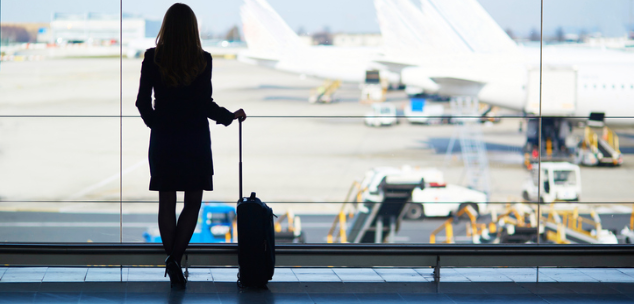When you’re travelling for work, it’s never ideal to get caught out in a situation that makes you late. Whether it’s travel delays, a public transport strike or anything else that comes up, it can be very frustrating having to postpone a meeting or function because of an unforeseen interruption. In fact, it’s probably up there on most people’s lists of “most annoying things ever”. So, how can you avoid disaster when travelling overseas?
Plan travel ahead of time
Instead of waiting to jump into a last minute Uber and succumbing to potential traffic issues or delays, think in advance about where you’re going and how long it’s likely to take you. When you’re overseas, it’s likely that you won’t know the area very well and it’s easy to get caught out. So plan your travel ahead of time. Most countries and cities have their own live traffic websites so that you can check whether there are any delays. Alternatively, if you’re going by train or bus (or ferry), use a transport planning website to plan your trip.
Get vaccinated
Obviously, certain countries will be more likely to expose you to certain medical issues than others, but having a medical check and receiving the necessary vaccinations before you leave home is important. If you haven’t been immunised and you fall ill with a preventable illness overseas, you may not be able to claim any medical expenses on your travel insurance. If you aren’t sure which vaccines you should consider, check out government website Smartraveller or ask your doctor. If you’re afraid of needles, there are often oral alternatives available (for example, malaria tablets) that you can ask your doctor about.
Be accessible
It’s important to make sure you’re contactable while you’re overseas. If anyone needs to touch base with you or if you’re running late to get somewhere, having your phone on you and having ready access to the Internet is invaluable. You can find free WiFi hotspots by visiting major cafe chains such as Starbucks or restaurants like McDonald’s. Alternatively, you can invest in a mobile phone plan that allows for international roaming or you could pay a capped limit for data overseas (such as Vodafone’s $5 a day option).
Print important documents
Losing your passport (or having it stolen) can be a business traveller’s nightmare. However, the process of obtaining a new or temporary passport from the embassy can be easily fast-tracked if you provide proof of your previous one. Any photos you have of your passport will be useful. It’s also a good idea to print out a physical copy of your itinerary as well as copies of any tickets or confirmation emails needed for your travels. This will ensure that if you lose your phone or laptop, you’ll still have all of the right information handy.
Check your cancellation policies
Avoid being double booked or having your booking cancelled at the last minute by confirming with your accommodation and the airline you are flying with beforehand. Although the likelihood of a double-booked flight is extremely low, it’s still a good idea to keep a physical copy of your flight confirmation with you in case something happens. And remember that if this happens, it’s likely you’ll be able to claim any extra costs incurred on your business travel insurance policy, but make sure you check the fine print beforehand!
With these tips you can ensure that things won’t go awry on your next business trip and you’ll be able to enjoy disaster-free travel. Bon voyage!
About the author
Bessie Hassan is the Travel Expert at financial comparison website finder.com.au.

